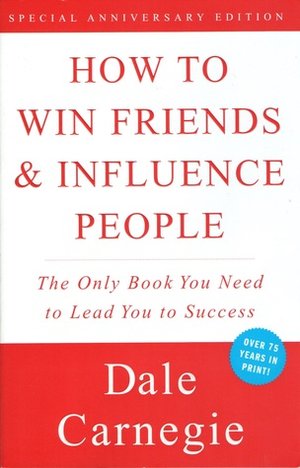How to Win Friends and Influence People
Appearance

| |
| Display Title | How to Win Friends and Influence People |
|---|---|
| Type | Book |
| Author/Creator | Dale Carnegie |
| Topics | Social Skills, Communication, Persuasion, Networking |
| Status | Published |
| Featured | Yes |
| Owner | Admin |
| Description | The timeless classic on building genuine relationships, handling criticism, and influencing others through understanding and appreciation rather than manipulation. |
